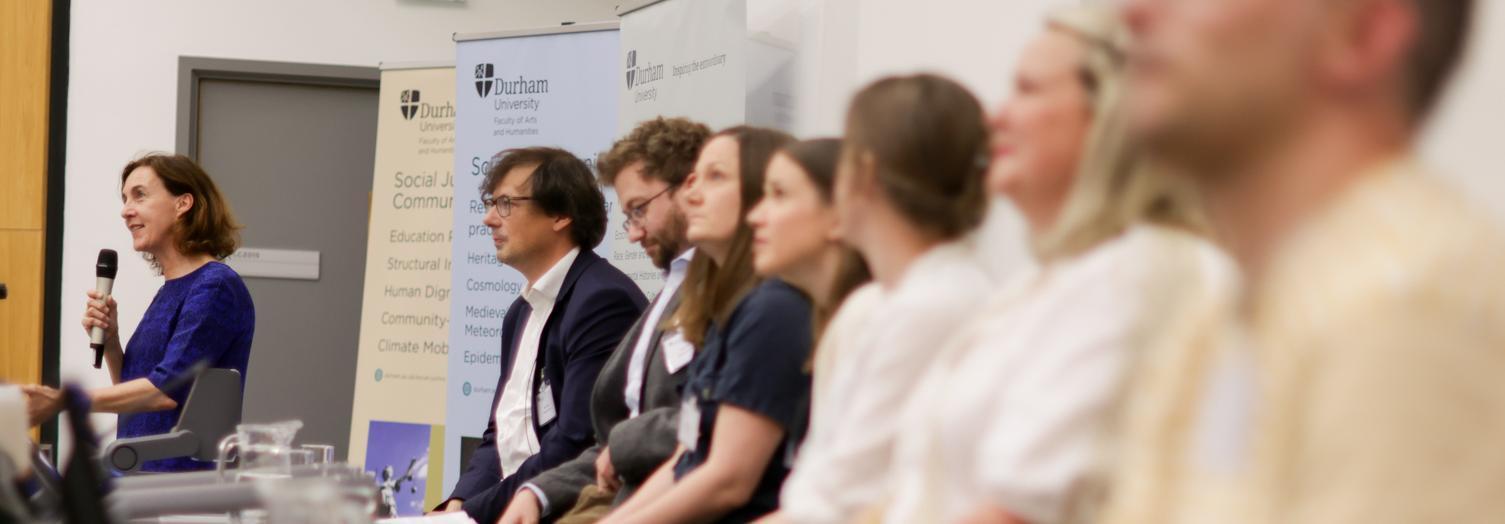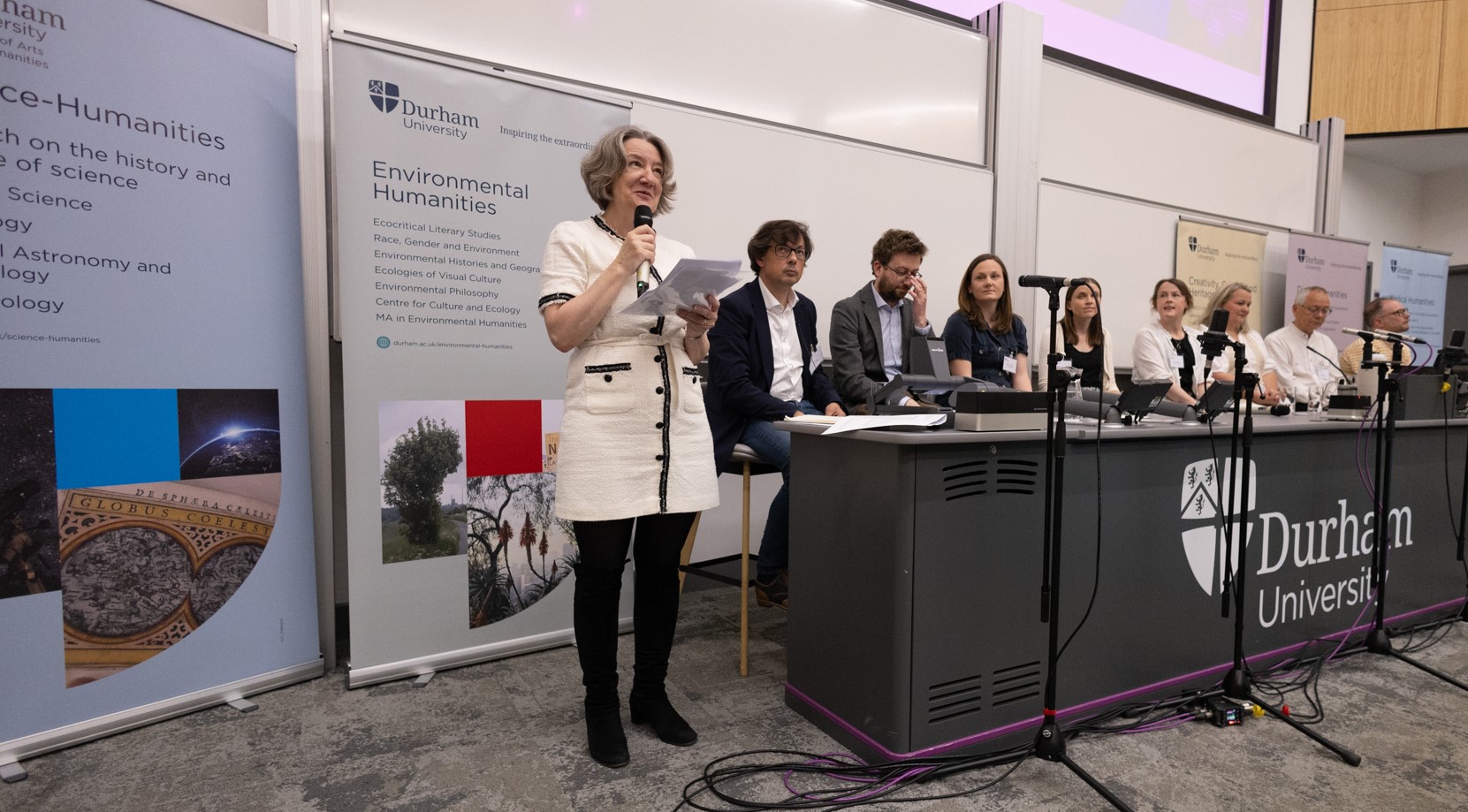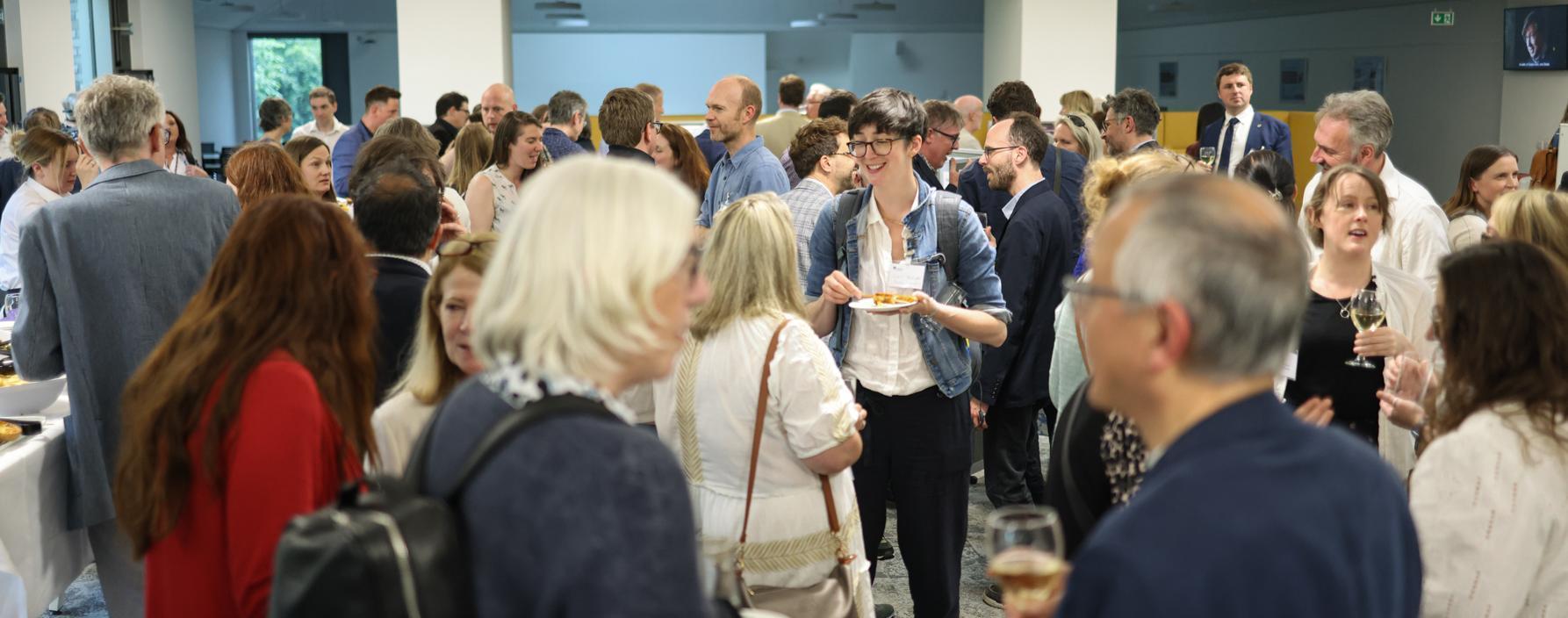Transformative Humanities framework launched
.png)
Durham University's Transformative Humanities launched yesterday and gathered more than 130 researchers, colleagues, students, and partners from across the region and beyond to celebrate this new interdisciplinary framework.
“We are excited that the Transformative Humanities initiative has officially launched”, said Professor Janet Stewart, Executive Dean Faculty of Arts and Humanities. “This framework celebrates the value of the arts and humanities and the insights and impact of our work, through many avenues of outreach, engagement, knowledge exchange, and widening participation, involving all our learning and research communities.”

Professor Karen O’Brien, Vice-Chancellor and Warden, added: “This perspective on the Humanities amplifies Durham University’s long-standing research excellence in this area, and brings the insights of humanities to bear on disciplines in Science, Business, and Social Science. It also addresses the needs of our communities and the challenges of the higher education sector.”

Six interdisciplinary thematic areas
The distinctive approaches found within the Transformative Humanities bring together research and education within the academy, and across a wide range of partners and communities. The framework is organised around six interdisciplinary thematic areas, inflected across and between disciplines:
- Culture, Creativity, and Heritage
- Digital Humanities
- Environmental Humanities
- Medical Humanities
- Science-Humanities
- Social Justice, Communities, and Policy
Integrating expertise across subjects and disciplines
Professor Giles Gasper, Executive Dean of Research Faculty of Arts and Humanities, explained: “The Transformative Humanities provides a focus for sustainable research, integrating our expertise across subjects and disciplines. From ancient and medieval worlds to science and technologies, we are here to enable a conversation that integrates learnings and insights which speak to our world today, enabling an informed, empowered response and insightful commentary for the challenges and needs of today's shared human experience.”
Insightful commentary and thought leadership
Professor Colin Bain, Pro-Vice-Chancellor (Research), said: “Through this approach, we are supporting insightful commentary and thought leadership to shape and empower our collective approaches to contemporary questions and future directions.”

About the Faculty of Arts and Humanities
Durham University’s Faculty of Arts and Humanities is world-leading: ranked 42nd in the QS World University Rankings by Subject 2024. Comprising seven departments, the Faculty’s research and teaching cover a wide geographical and chronological variety. Our students benefit from high-quality, research-led teaching, delivered by experts in their field. The Faculty’s Transformative Humanities framework comprises culture, creativity, and heritage; medical humanities; environmental humanities; social justice, communities, and policy; science-humanities; and digital humanities. This connects research and teaching in the arts and humanities across the University and with partners and communities locally, nationally and internationally, demonstrating the power of the humanities to enrich, shape and change lives.
Find out more:
Faculty of Arts and Humanities


/prod01/prodbucket01/media/durham-university/departments-/music/45088-2100X942.jpg)